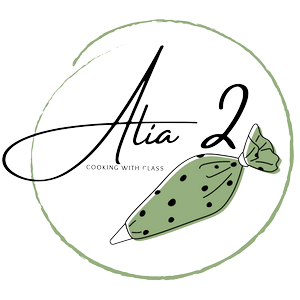Mediterranean Diet Tied to Lower Preeclampsia Risk
A Mediterranean diet is one of the highest-quality diets around. For thousands of years, this diet has been enjoyed across a variety of cultures, and its high concentration of fruits, vegetables, whole grains, and healthy fats has helped people achieve and maintain good health. A new study suggests that a Mediterranean diet may even reduce the risk of preeclampsia in pregnant women.
If you’re pregnant or planning on becoming pregnant, make sure to include plenty of healthy Mediterranean foods in your diet. This may help to lower your risk of preeclampsia.
What Is Mediterranean Diet?
A Mediterranean diet is primarily composed of legumes, nuts, vegetables, fruits, olive oil, fish, and whole grains. People who eat this way avoid red and processed meat and get the majority of their protein from lean sources such as poultry and seafood. Doctors often recommend adults eat a Mediterranean-style diet to reduce the risk of heart disease, but it can help reduce the risk of preeclampsia too.
What Is Preeclampsia?
Preeclampsia or toxemia is a serious condition in pregnant women. It causes blood pressure to shoot up, fluid retention, and protein in the urine. It can slowly deprive the body of the nutrients it needs. Preeclampsia can lead to medical complications like seizures, kidney failure, and heart failure. If preeclampsia is not diagnosed and treated early, it can be fatal to both the fetus and the mother.
Preeclamptic women are more likely to have premature or underweight babies. Their children are also more likely to develop high blood pressure and heart disease as they get older. Preeclampsia is a serious condition that can lead to a number of complications, including premature birth and low birth weight.
While the Mediterranean diet could be one reason behind pregnancy complications, there can be other causes as well that the doctor might have neglected or was unable to diagnose. Such incidents may not be frequent but still happen and can lead to a lawsuit under the guidance of a professional from a Georgia child birth law firm (or from other locations). During pregnancy, women should be more careful of their health, eating habits, and physical tasks, as well as can reach out to the gynecologist if they encounter any problem like discomfort, severe pain, bleeding, etc.
How Can a Mediterranean Diet Help?
There are many benefits to eating healthy foods and one of them is avoiding preeclampsia. Researchers say women who consumed a diet rich in fruits, vegetables, whole grains, legumes, and olive oil had a 38 percent lower risk of preeclampsia than women whose diets were more skewed towards refined grains, red meat, processed carbs, and saturated fat.
Another study in America by the Journal of the American Heart Association also found that, out of 8000 ethnically diverse participants, those eating a Mediterranean diet had a 20% or greater reduced risk of developing preeclampsia overall. Meanwhile, black participants saw a 26% reduction. Preeclampsia occurs twice as often in black women compared to other racial groups, so a 26% reduction in risk being attributed to diet is a huge finding.
Is The Mediterranean Diet Good for Pregnancy?
The Mediterranean diet has been hailed in many circles as the diet of choice during pregnancy. It’s usually comprised of fruits, vegetables, legumes, fish, and olive oil. And, as some studies have indicated, the Mediterranean diet is good for the heart and other health types. But some experts say more studies need to be done.
A recent study has found that women who follow the Mediterranean diet during pregnancy are more likely to deliver a healthy baby. The diet, high in fruits, vegetables, whole grains, nuts, olive oil, and seafood, has long been associated with longer, healthier life. It provides the essential nutrients needed during pregnancy, so expectant moms can feel good, look their best and give their little ones the best start in life.
Preeclampsia is a serious condition, but the good news is that taking a Mediterranean-style diet might reduce the risk of developing it. If you or someone you know recently had a baby, it’s always a good idea to talk with your doctor about whether a Mediterranean diet might help you and your baby.

